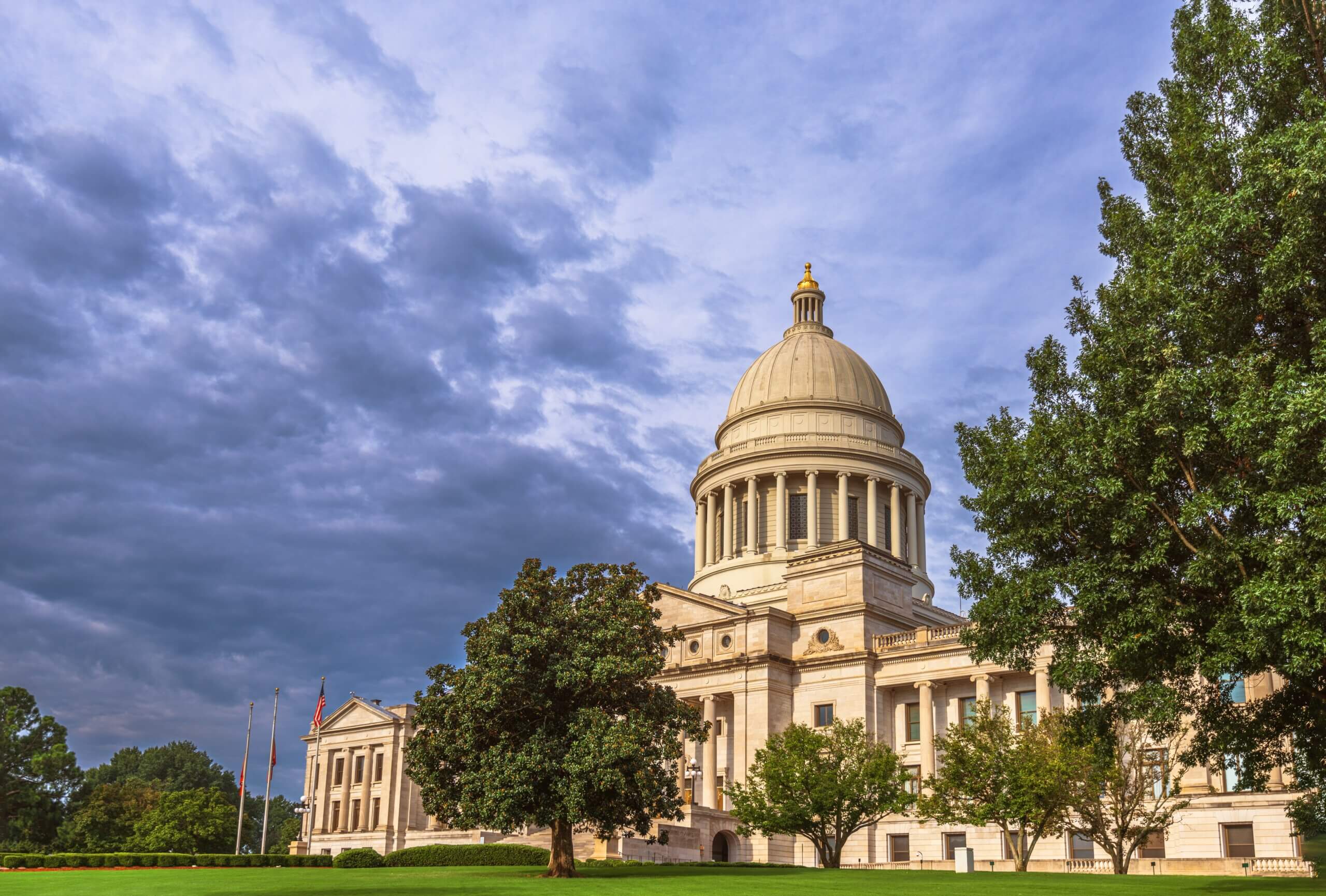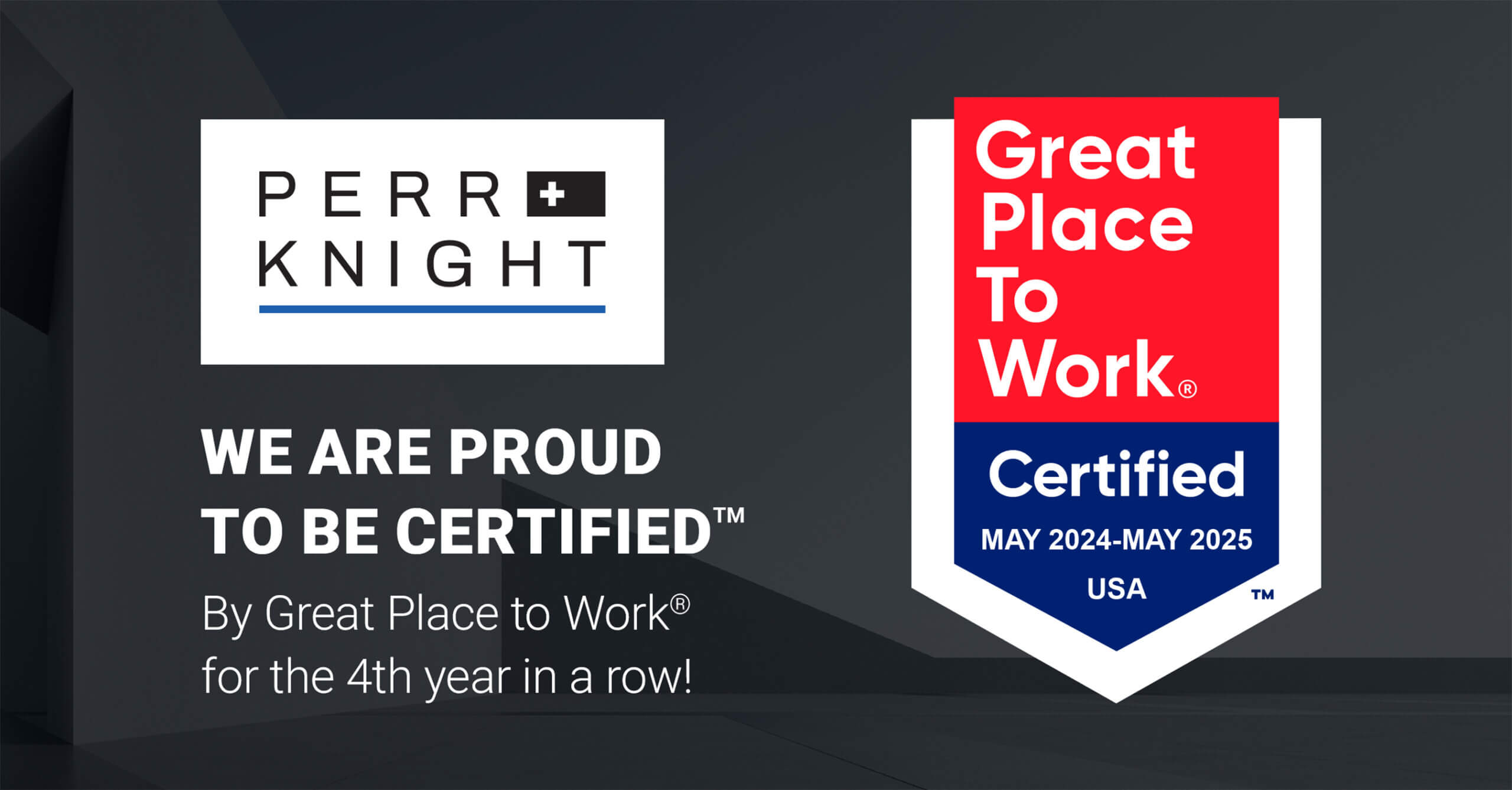Santa Monica, California — For the fourth straight year, PERR&KNIGHT is proud to be Certified™ by Great Place to Work®. The prestigious award is based entirely on what current employees say about their experience working at PERR&KNIGHT. This year, 86% of our employees said it’s a great place to work – as compared to 57% for the average U.S. company.
Great Place to Work® is the global authority on workplace culture, employee experience, and the leadership behaviors proven to deliver market-leading revenue, employee retention and increased innovation.
“Great Place to Work Certification is a highly coveted achievement that requires consistent and intentional dedication to the overall employee experience,” said Sarah Lewis-Kulin, vice president of global recognition at Great Place to Work. “By successfully earning this recognition, it is evident that PERR&KNIGHT stands out as one of the top companies to work for, providing a great workplace environment for its employees.”
“We are very excited to achieve Great Place to Work-Certified™ status for the fourth year in a row, as we put a great deal of effort into optimizing the employee experience at PERR&KNIGHT,” said Tim Perr, Managing Principal and CEO. “We are dedicated to continuously enhancing and improving the work environment and culture for our employees, and we celebrate and thank them for all they do to earn this recognition.”
“We are very focused on making PERR&KNIGHT a great place to work,” said Scott Knight, Managing Principal and Chief Sales Officer. “For years, we have been successful at doing this through two formal committees dedicated to enriching our employees’ experience, seeking the feedback of our employees and being responsive to the evolution of the workplace.”
According to Great Place to Work research, job seekers are 4.5 times more likely to find a great boss at a Certified great workplace. Additionally, employees at Certified workplaces are 93% more likely to look forward to coming to work, and are twice as likely to be paid fairly, earn a fair share of the company’s profits and have a fair chance at promotion.
WE’RE HIRING!
Looking to grow your career at a company that puts its people first? Visit our careers page at: https://www.perrknight.com/about/careers-3/.
About PERR&KNIGHT
Founded in 1994, Perr&Knight provides insurance consulting and software solutions to the property & casualty and life, accident & health industries. Services include actuarial consulting, product development, insurance policy and forms consulting, regulatory compliance, compliance and operational assessments/training, state filings, licensing, technology consulting, statistical reporting, data services, predictive analytics, and bureau monitoring & maintenance. Software includes StateFilings.com, the leading cloud-based state filings management solution. With offices in Santa Monica, Boca Raton, Cincinnati, and the New York metropolitan area, and with more than 150 insurance professionals including 30+ credentialed actuaries, Perr&Knight is among the largest independent actuarial and insurance consulting firms in the United States.
About Great Place to Work Certification™
Great Place to Work® Certification™ is the most definitive “employer-of-choice” recognition that companies aspire to achieve. It is the only recognition based entirely on what employees report about their workplace experience – specifically, how consistently they experience a high-trust workplace. Great Place to Work Certification is recognized worldwide by employees and employers alike and is the global benchmark for identifying and recognizing outstanding employee experience. Every year, more than 10,000 companies across 60 countries apply to get Great Place to Work-Certified.
About Great Place to Work®
Great Place to Work® is the global authority on workplace culture. Since 1992, they have surveyed more than 100 million employees worldwide and used those deep insights to define what makes a great workplace: trust. Their employee survey platform empowers leaders with the feedback, real-time reporting and insights they need to make data-driven people decisions. Everything they do is driven by the mission to build a better world by helping every organization become a great place to work For All™.






